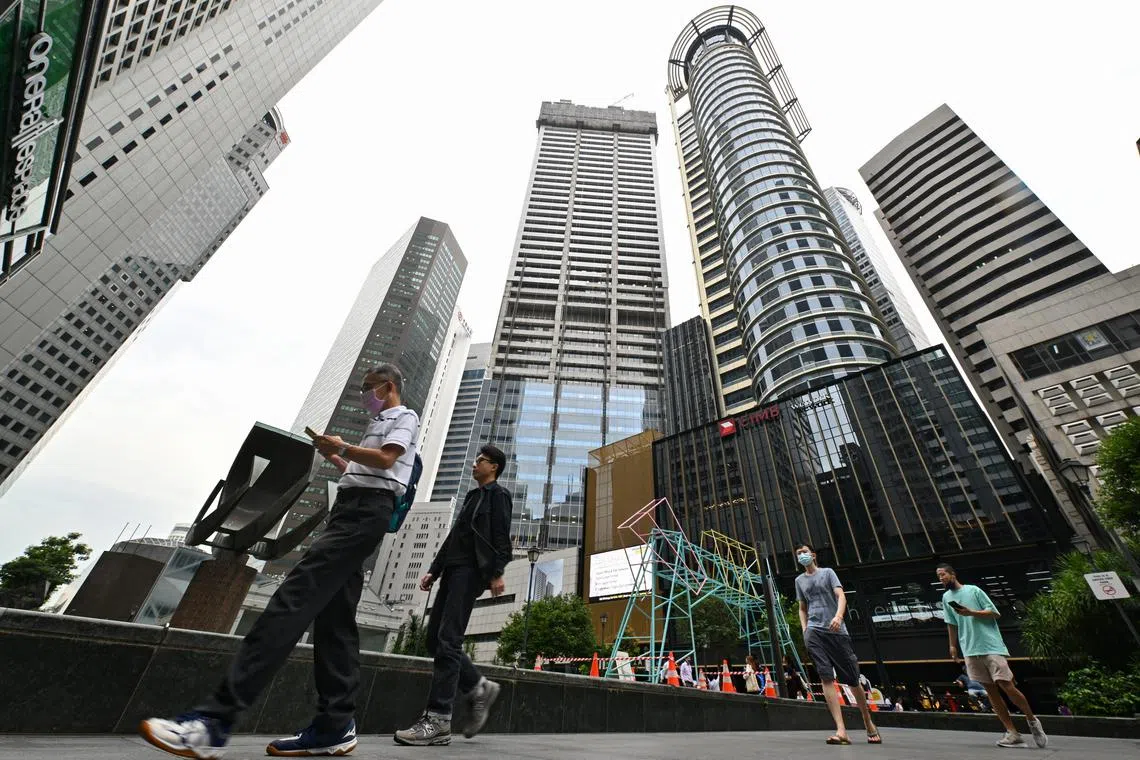S’pore sees 64,000 new businesses set up and 50,000 closed in 2022
Sign up now: Get ST's newsletters delivered to your inbox

The number of business formations here has held fairly steady from 2015 to 2022, though the number of business closures has risen since 2017.
PHOTO: ST FILE
Follow topic:
SINGAPORE – When Covid-19 and political instability struck Myanmar a few years ago, Mr David Chen and his team knew that they had to pivot the rice production company he co-founded.
He decided to leave Golden Sunland in 2021, and started an agri-fintech firm in Singapore in August that year.
With small-scale farmers in South-east Asia lacking access to capital, AgriG8 helps to facilitate more affordable financing for rice farmers in Brunei, Thailand and Vietnam, while enabling lenders to invest in climate-resilient farming.
By assessing a farmer’s crop performance via remote monitoring tools and working with partners with access to these farmers, AgriG8 can more accurately evaluate the risks of these microfinancing loans, thereby adjusting the interest rates each farmer pays.
The firm earns a commission for this service.
Mr Chen’s company is one of the many new businesses formed in Singapore in recent years.
Open-source data from the Department of Statistics’ website shows that the number of business formations here has held fairly steady from 2015 to 2022, hovering between 61,000 and 65,000 each year. The tally for 2022 was 64,304.
The number of business closures has risen since 2017. It reached 50,423 in 2022, the highest since 2016 (60,747).
The finance sector saw the greatest net increase in the number of businesses formed, recording a 150 per cent growth in 2022. A total of 8,307 businesses were formed, while 3,380 closed.
Coming in second was the information and communications industry (ICT), comprising e-commerce, cloud computing and software development companies.
The ICT sector recorded a 70 per cent net increase in the number of businesses formed in 2022, with 9,056 set up and 5,272 shut down.
CIMB economist Song Seng Wun attributed the rise in businesses set up to Singapore’s pro-business environment and reputation as a stable and conducive place with talent, despite higher costs.
The increase in closures, on the other hand, is a natural part of the business cycle, as some companies may not be able to sustain themselves in the competitive market, he said.
“The digital space will see more opportunities in the year ahead.
“There will definitely be more competition, but competition is healthy and the fittest will be able to survive. If founders do not have a clear plan of what they intend to do, it will be a lot more challenging,” Mr Song added.
OCBC Bank’s chief economist Selena Ling noted that the rise in business formation during the Covid-19 pandemic year could be due to many workers turning to self-employment by starting their own small businesses.
As the economy reopens further, these numbers may stabilise in 2023, she added.
“However, the macroeconomic environment is deteriorating, but inflationary pressures are not subsiding significantly, so the business landscape may remain something of a mixed bag, depending on the different industries,” she said.
Ms Ling added that the ICT and finance sectors are likely to stay resilient in 2023.
“The driver for ICT may be Singapore’s digitalisation strategy, and increased demand for cyber-security requirements and cloud/IT solutions.
“The finance sector may be driven by the inflow of wealth and capital, as well as the push towards fintech and financing the transition to net-zero emissions and environmental, social and governance targets,” she said.
Mr Chen, who is targeting to close his seed fund-raising round by February, is aiming to get more farmers on board this year, and capture this large untapped market. Seed fund raising typically occurs in the early stages of a firm’s development.
“With all the hype in the markets dying down, investors are looking back at the fundamentals of investment, and may want to refocus their attention to primary industries like rice production.
“Such a core industry is more resilient to economic downturns, especially since rice is a key staple in the Asian diet,” he added.
Correction note: An earlier version of this article stated that there were 62,000 business closures in 2016. This is incorrect. The number should be 60,747. We are sorry for the error.


